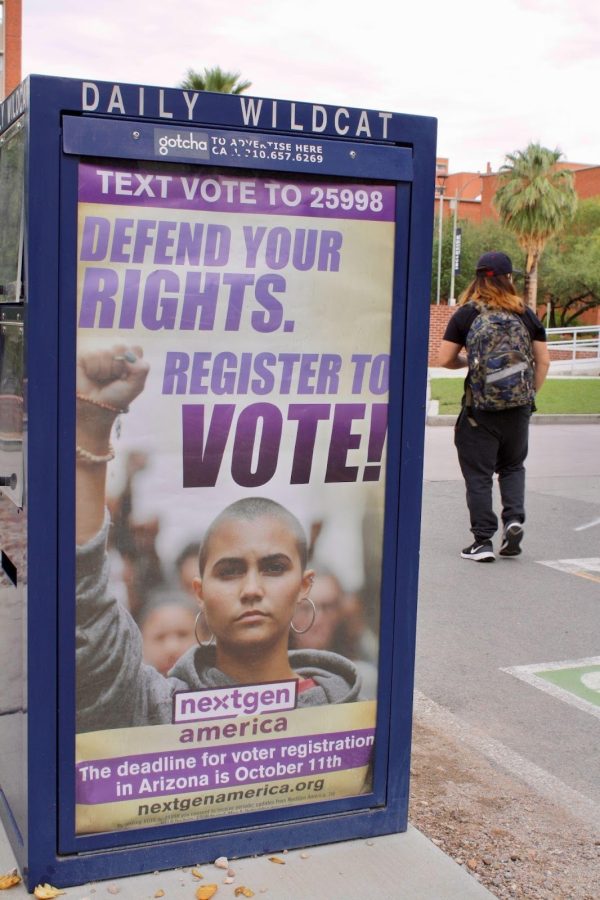After months of confusion surrounding the abortion issue in Arizona, including a controversial ruling by a Pima County Superior Court justice that would have imposed a complete abortion ban, Arizona is still seeking clarity on its abortion laws.
It all started when Pima County Superior Court Judge Kellie Johnson ruled on Sept. 23 that abortions are only legal in cases of a potential threat to the mother, with no exceptions in cases of rape or incest.
That was the same abortion law that was in place in 1901.
Her ruling came after Arizona Attorney General Mark Brnovich asked the court to lift the decades-old injunction put into place with the 1973 passage of Roe v. Wade, which legalized abortion nationwide. The state law that was in effect at the time that Roe was approved was the 1901 complete ban.
In March, Gov. Doug Ducey signed into law a 15-week abortion ban, which lawmakers back in the 1970s had supported, but it couldn’t go into effect with the injunction still in play.
Last Friday, the Arizona Court of Appeals sided with Planned Parenthood, who appealed Johnson’s ruling. That means abortions can now resume.
All of this back-and-forth has created some confusion among some on the University of Arizona campus.
“I think it’s sad that a vast majority of Americans have expressed that they don’t want a total abortion ban, and yet, here’s one coming now,” Ryan Hicks, a sophomore studying law, said.
Professor Andrew Shepherd from the James E. Rogers College of Law has extensive knowledge about the jurisprudence surrounding abortion, and he explained why Johnson’s initial ruling was understandable given what the state was requesting.
“It’s a bit unclear because the procedure, in that case, tied the hands of the judge; this was the state asking the court to remove an injunction,” Shepherd said.
Back in the 1970s, there was a legal challenge to Arizona’s 1901 law that banned abortion. The law was ruled constitutional, but lawmakers at the time were considering allowing abortions up to 15 weeks of pregnancy. However, an injunction was imposed when Roe v. Wade legalizing abortion on a federal level was decided three weeks later.
That nearly 50-year-old injunction was still on the books, hence the state filing to have the court lift it in September.
“It will be interesting to see what the courts say in the future because this was a request to remove an injunction, not a challenge to the law,” Shepherd said.
UA Professor Barbara Atwood, co-director of the Family and Juvenile Law Certificate Program, said, “the ruling just creates chaos right now.”
“It’s not clear what the law is in Arizona. [Johnson] didn’t really explain in her ruling how it would mesh with other existing laws, including the so-called 15-week ban,” Atwood said.
“The impact on people seeking an abortion is enormous right now. We don’t know how the courts will actually resolve this,” she added. “[Johnson] seems to think this old law trumps all pre-existing laws in Arizona.”
Arizona previously enacted a law that barred telemedicine providers from distributing abortion pills. They have also banned mailing abortion pills to anyone in the state. In light of Johnson’s ruling, most abortion clinics in the state halted procedures out of concerns they would face legal peril.
“It’s a really difficult position for a doctor to be in,” Atwood said. “It isn’t clear if death has to be imminent … or is abortion permissible if the mom has an underlying medical condition? Is that a case where abortion would be permitted?”
The ‘old ban’ kicked in at contraception forward and only has one exception — to preserve the life of the mother.
“Living in a country where our reproductive rights are being taken away affects everyone on campus, not just the people who have a uterus,” Skylar Zannini, a UA journalism undergrad, said. “It’s scary to think that if a student here needed an abortion, they wouldn’t have the option of a safe and legal one.”
“This opens the door on how women are viewed in society,” Hicks said.
*El Inde Arizona is a news service of the University of Arizona School of Journalism.
Follow the Daily Wildcat on Twitter









